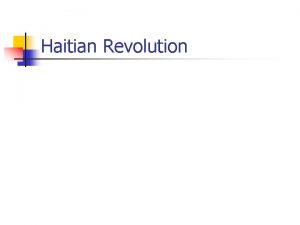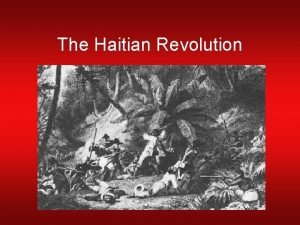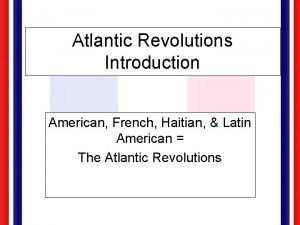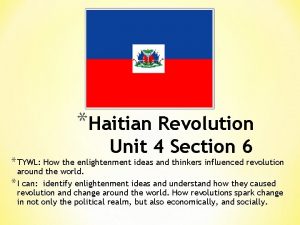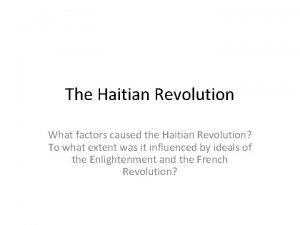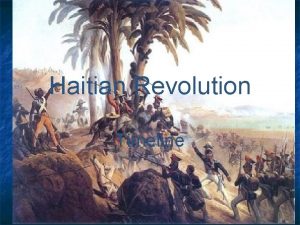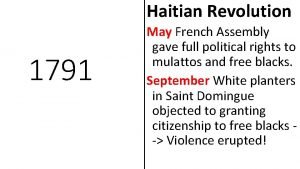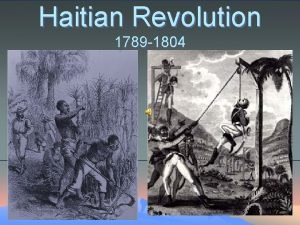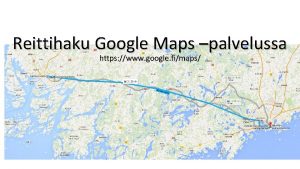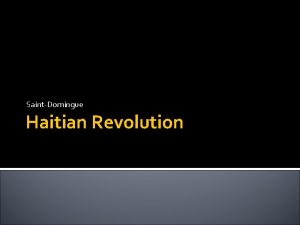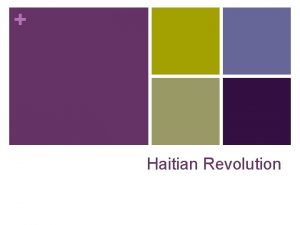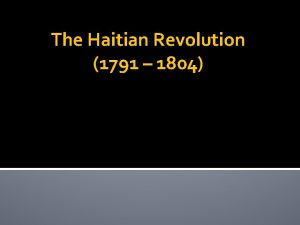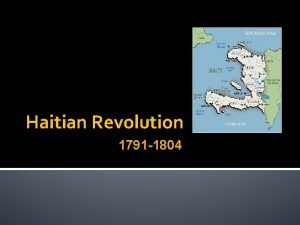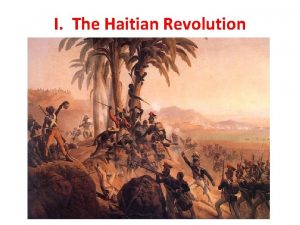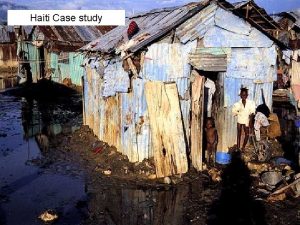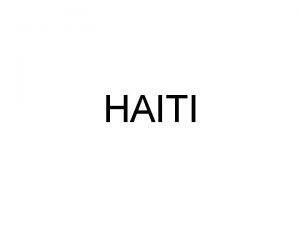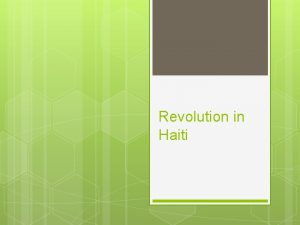SaintDomingue Haitian Revolution Maps of SaintDomingue Haiti SaintDomingues













- Slides: 13

Saint-Domingue Haitian Revolution


Maps of Saint-Domingue (Haiti)

Saint-Domingue’s Racial Breakdown in the 18 th Century 20, 000 -40, 000 whites 3. 5% - 7% 30, 000 free people of color (gens de couleor) 5% 15, 000 mulattos ▪ 2. 5% 500, 000 slaves (most of whom were African – born) 88%

Saint Domingue’s Economy Plantations produce sugar, cotton, indigo and cotton. In 1789 Saint Domingue accounts for 2/3 of France’s tropical imports. Generates 1/3 of France’s foreign trade.

Haiti sends reps to the Estates General: Wealthy white planters sent representatives who wanted more home rule and economic freedom Gens de couleur also sent representatives, but they sought an end to race discrimination and support for political equality Neither group sought freedom for slaves.

Turmoil in France Incites Turmoil in Saint Domingue (Haiti) The gens de couleur forged alliances with French radicals The wealthy plantation owners related to French royalists and aristocrats.

Revolution The bickering between the wealthy land owners and the gens de couleur turned into all out warfare by 1791 and opened up an opportunity for slaves to rise up against their oppressors.

Slave Rebellion

Francois Dominique Toussaint L’Ouverture 1794 France’s radical national convention abolishes slavery. The directory contemplates reestablishment of slavery in 1799. 1802 - Napoleon sends forces to reestablish colonial authority and slavery. Many die of Yellow fever. L’Ouverture is captured and sent to a prison in France, where he eventually dies. 1804 - L’Ouverture’s successors declare independence and Haiti becomes the second independent country in the Western Hemisphere.

Independence and Emancipation At what price? Tens of thousands dead The economy destroyed. Public administration corrupted by more than a decade of violence.

Haiti After the Revolution Haiti’s first leader: Jean. Jacques Dessalines, a former slave and victim of a cruel and brutal master.

Dessalines . At the Conference of Archaie in 1803, Dessalines was the person who reputedly tore the white stripe from the French tricolor and determined Haiti's flag to be two stripes, a blue and red one, to symbolize that the "white" had been ripped out of Haiti, perhaps as a prophecy of what was to come in a few months later. "This doesn't say what we really feel. For our declaration of independence we should have the skin of a blanc for parchment, his skull for inkwell, his blood for ink, and a bayonet for pen!" (Cited in Heinl and Heinl, 1978)
 Haitian
Haitian Haitian revolution map
Haitian revolution map Cause of haitian revolution
Cause of haitian revolution Haitian revolution causes
Haitian revolution causes Causes of haitian revolution
Causes of haitian revolution Haitian revolution effects
Haitian revolution effects What factors caused the french revolution
What factors caused the french revolution Haitian revolution causes
Haitian revolution causes Haitian revolution timeline
Haitian revolution timeline Haitian
Haitian Dutty boukman organizes slave revolution
Dutty boukman organizes slave revolution Haitian creole is an example of patois because
Haitian creole is an example of patois because Reittihaku google maps
Reittihaku google maps Haiti amerique international
Haiti amerique international
